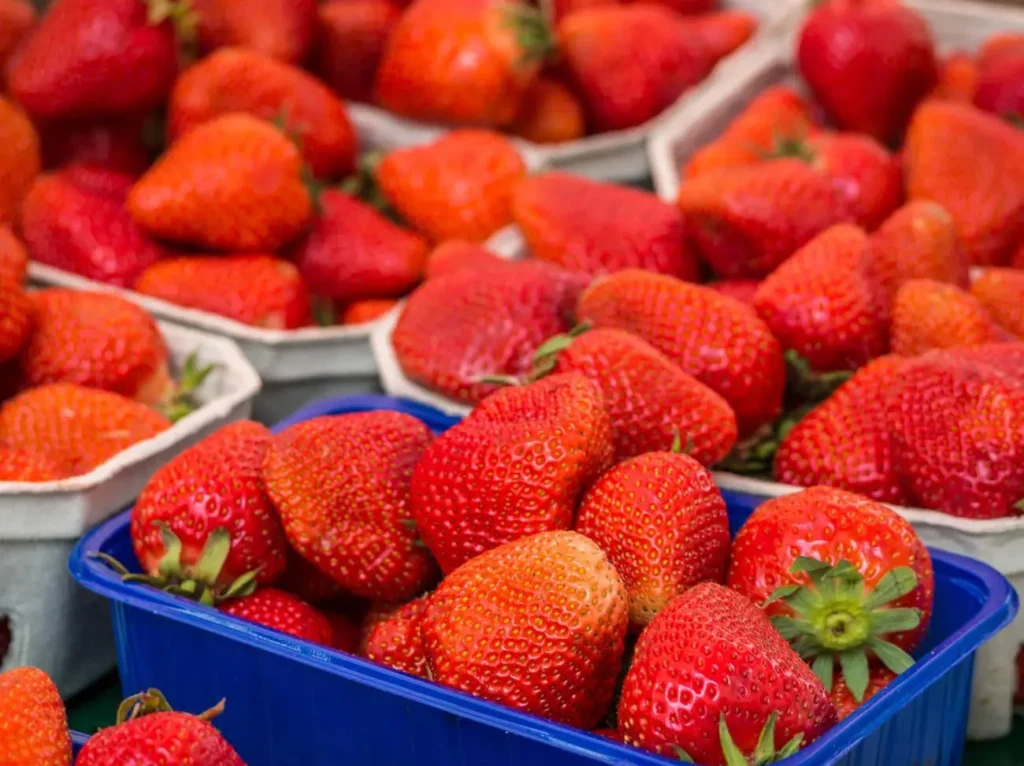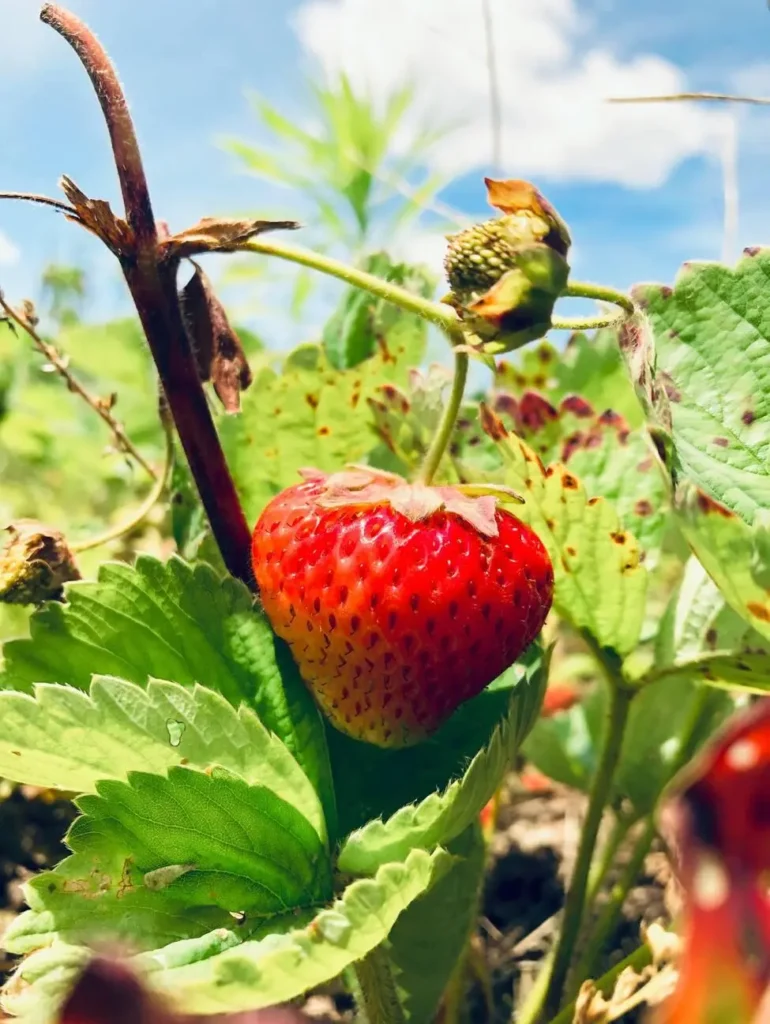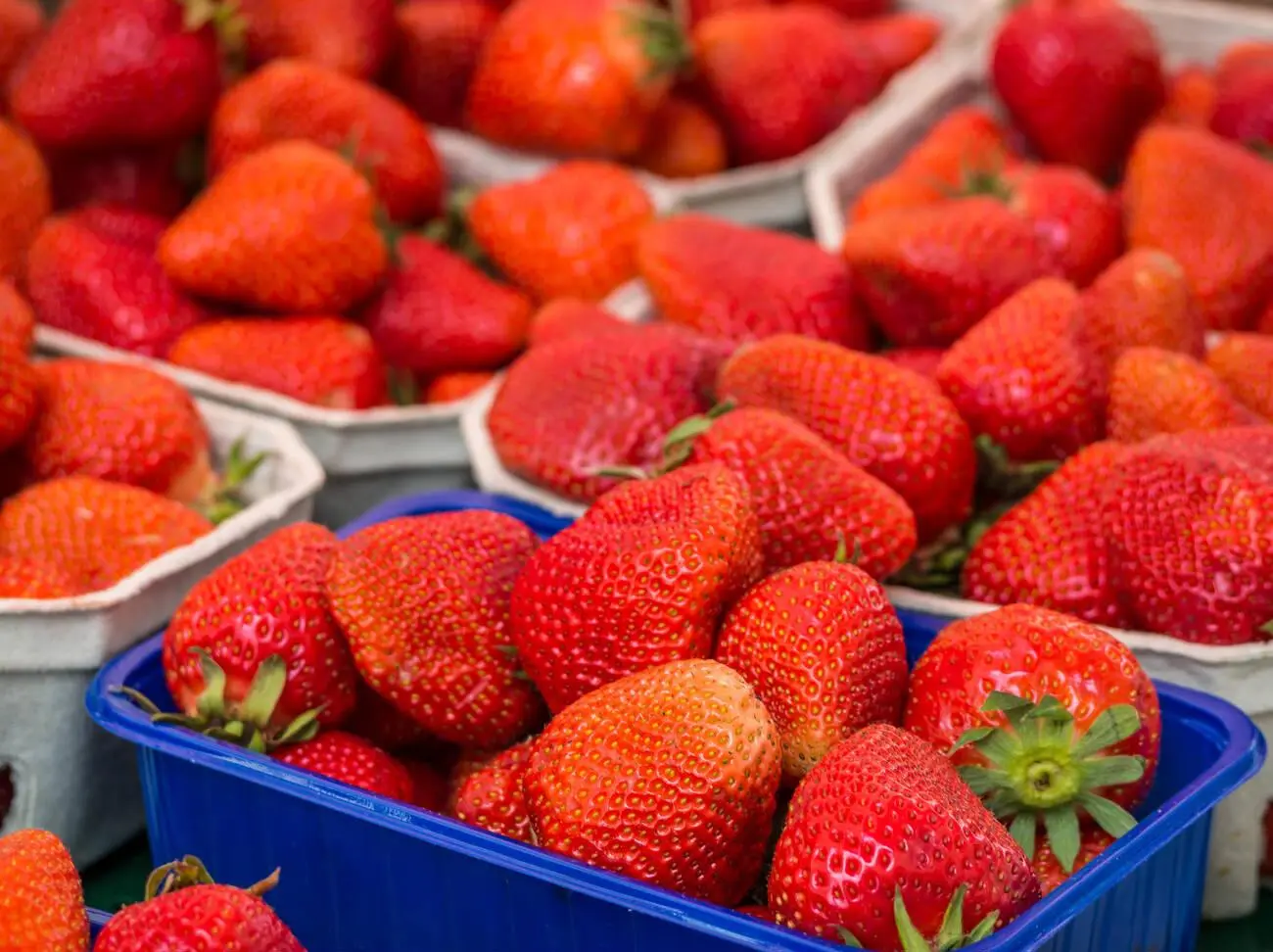As spring approaches, many people eagerly await the arrival of strawberry season. But do you know when the best time is to indulge in these sweet and juicy fruits?

We will explore the importance of strawberry season, what factors affect the sweetness of strawberries, and how to choose the sweetest ones when buying.
We will also discuss the best ways to store and enjoy strawberries, including freezing them for later use. And, of course, we will dive into the numerous health benefits that strawberries offer, from aiding in weight loss to boosting digestion.
Get ready to learn all about the delicious and nutritious world of strawberries!
When is Strawberry Season?
Strawberry season typically varies depending on the region’s climate and growing conditions. In general, it falls during the spring and early summer months when the weather is optimal for strawberry cultivation.
For instance, in regions with temperate climates like California, the strawberry season can start as early as January and last until November, allowing for multiple harvests. Conversely, in colder regions like Canada, the season may be shorter, usually running from June to August.
The quality and sweetness of strawberries are greatly influenced by the timing of the harvest. Strawberries picked at peak ripeness during the ideal growing season tend to be juicier and sweeter, making them more desirable for consumers.
Why is Strawberry Season Important?
The strawberry season holds immense significance due to the freshness and flavor of locally grown organic strawberries during this time. It marks the period when these juicy red fruits are at their peak ripeness and sweetness.
Consumers eagerly await strawberry season for the delicious taste, vibrant color, and nutritional benefits of locally sourced organic strawberries. These fruits are rich in vitamins, antioxidants, and fiber, making them a smart choice for health-conscious individuals. Opting for seasonal produce like strawberries supports sustainability by reducing transportation emissions and boosting the local economy.
What Factors Affect the Sweetness of Strawberries?
The sweetness of strawberries is influenced by various factors such as ripeness, growing conditions, and time of harvest. Understanding these elements is crucial to selecting the sweetest fruit for consumption.
Fully ripened strawberries on the plant develop higher sugar content for a sweeter taste. Growing conditions, like sunlight, soil quality, and watering, significantly influence sweetness. These factors shape the fruit’s flavor profile, highlighting the importance for growers and consumers to consider their impact on taste and quality.
How to Choose the Sweetest Strawberries?
Selecting the sweetest strawberries involves considering factors like taste, freshness, and the specific varieties available. Knowing how to pick the ripest strawberries ensures a delightful and flavorful experience.
To determine the freshest strawberries, look for ones that are plump, firm, and have a vibrant red color all around. Smell plays a significant role too – a fragrant, sweet scent indicates ripe fruit.
Different strawberry varieties offer varying levels of sweetness and tartness, so it’s essential to understand your preference. For sweeter strawberries, opt for varieties like Seascape or Albion, while those preferring a balance of sweet and tart flavors may enjoy Chandler or Jewel strawberries. Experimenting with different cultivars can lead to discovering new favorite flavors and textures.
What to Look for When Buying Strawberries?
When buying strawberries, look for vibrant red hues, juicy textures, and a fresh aroma to ensure you’re getting high-quality produce. Opting for organic varieties can also enhance the overall flavor and nutritional value.
Organic strawberries tend to be smaller in size but pack a powerful punch of sweetness. Their rich, deep red color signals abundant antioxidants and nutrients.
When you gently squeeze a strawberry, it should yield slightly without being mushy, indicating perfect ripeness. The best strawberries will emit a sweet and slightly floral fragrance, signifying peak freshness.
Choosing organic ensures you’re avoiding harmful pesticides and supporting sustainable farming practices. By handpicking ripe strawberries, you’re guaranteeing a burst of flavor in every bite, along with a boost of essential vitamins and minerals.
What to Avoid When Buying Strawberries?
When buying strawberries, it’s crucial to avoid fruits with signs of mold, pests, or diseases that can affect their taste and overall quality. Proper handling and storage practices can help preserve the freshness of strawberries.
- Inspecting strawberries before purchase is essential as mold or pests can quickly spread and spoil the entire batch. Look for any soft spots, discoloration, or unusual holes on the berries, which indicate underlying issues.
- Once you’ve selected ripe and healthy strawberries, store them in a well-ventilated container in the refrigerator to maintain their flavor and extend their shelf life. Avoid washing strawberries until right before consumption to prevent them from becoming mushy.
By following these simple steps, you can enjoy delicious strawberries for longer periods.
How to Store Strawberries to Keep Them Sweet?

Proper storage is essential to maintain the sweetness and freshness of strawberries. Following the right preservation techniques helps extend the shelf life of these delicious fruits while preserving their flavor.
- Storing strawberries in the refrigerator is a common practice, but it’s important to ensure they are dry and loosely packed to prevent moisture build-up. Opt for breathable containers or paper towels to absorb excess moisture, which can cause berries to spoil quickly.
- Another effective method is to freeze strawberries for longer-term storage. Before freezing, hull the strawberries and spread them out on a baking sheet to individually quick-freeze. Once frozen, transfer them to airtight containers or freezer bags to maintain their texture and taste.
What Are the Best Ways to Enjoy Strawberries?
Strawberries offer a versatile ingredient for creating delightful dishes and treats. From luscious desserts like strawberry shortcake to refreshing beverages like smoothies, there are numerous ways to enjoy the sweet and tangy flavors of strawberries.
In addition to these classic recipes, strawberries can also be a surprising yet delicious addition to savory dishes. For instance, a strawberry and spinach salad with a balsamic vinaigrette can add a burst of sweetness to balance the earthy greens. Incorporating strawberries into salsa for a unique twist on fish tacos or using them as a topping for grilled chicken can elevate your culinary creations. Experiment with pickling strawberries for a tangy and sweet accompaniment to cheeses and charcuterie boards, showcasing the fruit’s versatility in unexpected and exciting ways.
Can You Freeze Strawberries?
Freezing strawberries is a convenient method to preserve their freshness and enjoy them beyond the typical season. Frozen strawberries can be used in various recipes, including smoothies, jams, and desserts.
When preparing strawberries for freezing, start by washing and hulling them. Pat the berries dry before laying them out on a baking sheet in a single layer. This helps prevent them from clumping together during the freezing process.
Once frozen solid, transfer the strawberries to airtight containers or freezer bags to minimize exposure to air and prevent freezer burn. When incorporating frozen strawberries into recipes like jams or jellies, be sure to account for any excess moisture that may be released during the thawing process. For fruit salads, partially thawed strawberries can add a refreshing twist to the mix.
What Recipes Can You Make with Strawberries?
Strawberries can be used to create a wide range of delicious recipes, including homemade jams, jellies, fresh fruit salads, and decadent desserts. The natural sweetness and vibrant color of strawberries enhance the taste of these culinary creations.
Their juicy texture and refreshing taste make strawberries a versatile ingredient that can be incorporated into both sweet and savory dishes. Whether you’re looking to whip up a quick strawberry compote to top your morning pancakes or indulge in a luxurious strawberry cheesecake, there’s a recipe for every occasion. Experiment with combining strawberries with different flavors like balsamic vinegar for a unique twist, or simply enjoy them on their own for a burst of summer flavor.
What Are the Health Benefits of Strawberries?
Strawberries are not only delicious but also packed with essential nutrients and health benefits. They are rich in vitamin C, antioxidants, and fiber, making them a nutritious addition to a balanced diet.
These vibrant red berries are known for their high vitamin C content, which plays a crucial role in supporting a healthy immune system. The antioxidants found in strawberries help protect cells from damage caused by free radicals, reducing the risk of chronic diseases. The dietary fiber in strawberries promotes digestive health and can aid in weight management by keeping you feeling full longer. Regular consumption of strawberries has been linked to improved heart health, as they may help lower blood pressure and reduce inflammation.
Are Strawberries Good for Weight Loss?
Strawberries are considered beneficial for weight loss due to their low calorie content and high fiber levels. Including strawberries in a balanced diet can help control calorie intake while providing essential nutrients.
The fiber in strawberries not only aids in digestive health but also plays a key role in promoting feelings of fullness and satiety. This can help manage cravings and prevent overeating, making strawberries a smart choice for those looking to support their weight loss goals.
By incorporating strawberries into snacks or meals, individuals can enjoy a satisfying and delicious option that contributes to a healthy weight management plan.
Can Strawberries Help with Digestion?
Strawberries are beneficial for digestion due to their high fiber content, which promotes gut health and aids in proper digestion. Including strawberries in your diet can support digestive regularity and overall digestive well-being.
Fiber is essential for maintaining a healthy digestive system, as it helps to prevent constipation by adding bulk to the stool and promoting regular bowel movements. Strawberries are particularly rich in soluble and insoluble fiber, making them a fantastic addition to your daily diet for improved gastrointestinal health. By incorporating strawberries into your meals or snacks, you can experience the benefits of enhanced digestion, reduced bloating, and a happier gut overall.
Do Strawberries Have Any Nutritional Value?
Strawberries are a nutritional powerhouse, containing essential vitamins, antioxidants, and dietary fiber. These nutrient-dense fruits offer a range of health benefits, including immune support, cardiovascular protection, and skin health.
Vitamin C, a prominent nutrient in strawberries, plays a critical role in boosting the immune system and promoting collagen production for healthy skin. The antioxidants present in strawberries, such as ellagic acid and quercetin, help combat oxidative stress and inflammation, reducing the risk of chronic diseases like cancer.
Alongside these, minerals like potassium aid in regulating blood pressure, while dietary fiber supports digestive health by promoting regularity and satiety when consumed as part of a balanced diet.
